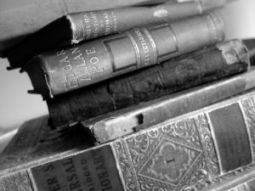The story II … how to find an author
How do we find an author? If our story was written in book form, we would simply look on the back cover or the last page and we’d have it. The author bio. However, we don’t have a book. There isn’t even an e-book available. So, how can we find and get to know our author? Where do we begin?
Let us begin by looking at what we do know. Our story. Could it be that the author is revealed in the writing of a story? Surely this is true since all the elements of story come from the mind of the author. So it seems we must  study our story to have any hope of finding and knowing the author. But how do we carry out this study if our story is not recorded? What do we have to go on? We have only our daily experiences and personal history.
study our story to have any hope of finding and knowing the author. But how do we carry out this study if our story is not recorded? What do we have to go on? We have only our daily experiences and personal history.
So how do we dissect our story to reveal the creative genius that is its author? There are several key elements that go into a good story. First, there are the characters. There is always a main character. Is that me? Is that you? Somehow I doubt it. If you ask writers, they will tell you that there are protagonists and antagonists. Put in simpler terms, heroes and villains. Who is the hero or heroine of our story? Who is the villain? And of course, there are many more minor characters in stories. Given the vast number of people on our planet, it would seem our story contains many smaller characters. Perhaps we are one?
All stories have a setting. The setting is where a story takes place. The setting helps set the mood of the story and introduces constraints on the characters. Would texting in a medieval setting make sense? Nope. Wrong setting. So what is the setting of our story? It appears to be Earth in the 21st century. But maybe, like Neo in the Matrix or the Pevensies in the Chronicle of Narnia, we will find our story existing in another setting altogether. That could change everything.
Of course stories have plots. Plots are basically what happens in a story. If we agree that we are in a story and this story has an author, then there must be a plot. However, as characters in a story without a script, understanding the plot seems daunting. But isn’t that one of the questions we ask most often: “What should we do?”
And of course there is conflict. All stories contain conflict. You and I both know that our story most certainly does! This conflict is obvious, good versus evil. We may not all agree on the definitions of good and evil, but we know they exist, they are in conflict, and somehow we are caught in the middle.
And finally, there is the resolution. Good overcomes evil, the hero triumphs, the lovers are reunited, families and friendships are restored. While these are not the resolution of all stories, we certainly hope that they will be the resolution of ours. Isn’t that one of our greatest desires? Of course, but there is a problem. We don’t know the resolution of our story, do we? How would your life change if you knew the resolution of your story before its end? Would that change your view of our story? Your role? The author?
So where do we go from here? We go to our story …